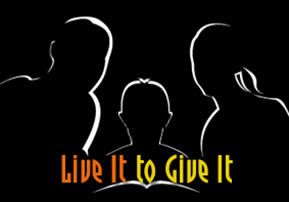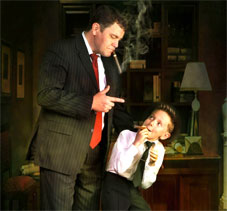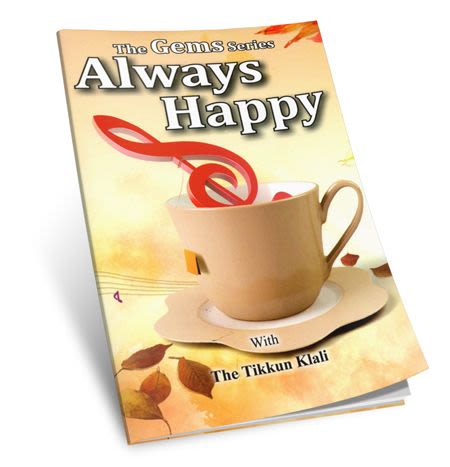
Ekev: Live It to Give It
When the son sees that the Bava Kama is much more important to Daddy than the newspapers, he'll want to learn Bava Kama too...

"You shall teach them to your children to talk about them, while you sit in your home, while you walk on the way, when you lie down and when you arise."(Deuteronomy 11:19).
The Torah commands us to teach our children to "talk about them" – them, the words of Torah – constantly. We would think that the command should say, 'you shall teach them to your children to talk about them, while they sit in your home, while they walk on the way, when they lie down,' and so forth. This is the seemingly logical way of teaching our children to live a life of Torah values, by speaking about and internalizing Torah and its teachings from morning to night, in everything they do. Yet, surprisingly, the Torah instructs the parent to teach them to discuss Torah while he sits in his home, walks on the way, and the like. What's the message that the Torah is conveying here?
The Torah is telling the parent that education is not preaching – it's personal example. A child's innate sense of justice cannot stand hypocrisy. A parent who preaches one thing yet practices otherwise is guaranteed to obtain the opposite results. In the course my own personal contact with "off-the-derech" young people – teens and young adults that have forsaken the path of observant Judaism – their most frequent complaint has been parental hypocrisy. They couldn't reconcile themselves with parents who spoke like Esther and Mordechai but acted like Zeresh and Haman.
In his classic book The Garden of Education, my esteemed and beloved teacher Rabbi Shalom Arush stresses that a parent cannot give anything tangible or intangible to a child if the parent does not possess what he or she wants to give. For example, you can't lend a person fifty dollars unless you have a fifty-dollar bill in your wallet. Likewise, a person cannot instill a value in his or her child if they don't have a full kinyan, a full hold  on that value. In simple English, if you live it, you can give it: if you don't live it, you can't give it. Therefore, before a parent educates his child, he must educate himself.
on that value. In simple English, if you live it, you can give it: if you don't live it, you can't give it. Therefore, before a parent educates his child, he must educate himself.
We can see that Rabbi Arush's principle of "live it to give it" is right out of the Torah, as evident in the above-cited passage. Hashem is telling us that the best way to teach our children to be immersed in Torah is when we ourselves are immersed in Torah. The Torah is saying, "while you sit in your home" and the subject of your discussion is Bava Kama and not the New York Times or the Washington Post, then you won't even have to tell your son to pick up a Gemara. When he sees that the Bava Kama is much more important to Daddy than the newspapers, he'll want to learn Bava Kama too.
The same goes for Mom and her daughters. When mom's Friday mornings are devoted to distributing challas that she baked to poor families, her daughter will undoubtedly follow in her footsteps and engage in acts of lovingkindness as well. But, when Mom's prime-time Friday mornings are devoted to the make-up specialists, the clothes shops and the sheitel-machers (wig-makers), then the daughter will conclude from Mom's personal example that nothing in the world is more important than the latest European natural-hair wig with a real-looking part in the middle, that looks better than natural hair, the latest fashion, and the eye-shadow with the glittering sparkles, none of which have anything to do with modesty, holiness or serving Hashem. Once she gets married, the daughter will also be willing to spend an entire month of her husband's hard-earned money on such a sheitel, because that's what Mommy did. Mommy's wig cost almost twice as much as Daddy's tefillin! Maybe the daughter will be "Orthodox", but her head certainly won't be in spiritual endeavors and charitable deeds. Because of her material demands, her husband won't be able to devote much time to learning Torah, for he'll be chasing dollars…
Children have highest regard for parents, their chief role-models. As our sages teach, the deeds of parents are stepping stones for the children. If you live it, you can give it!












Tell us what you think!
Thank you for your comment!
It will be published after approval by the Editor.